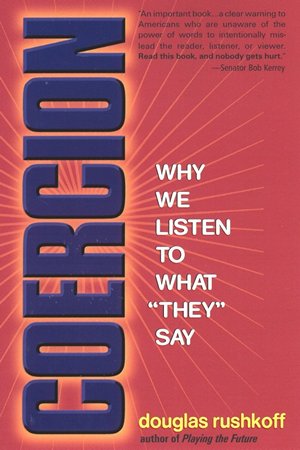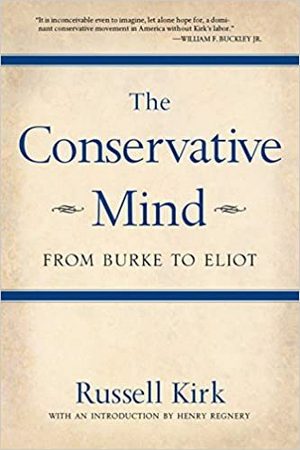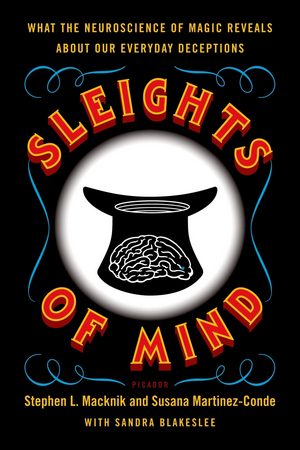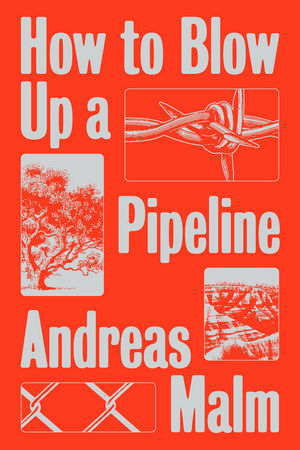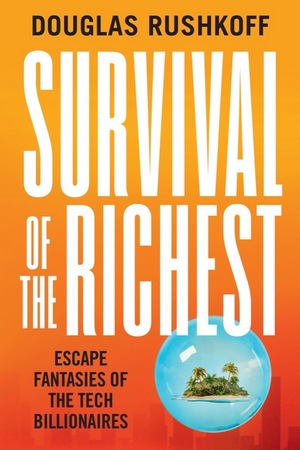Political Books
The Prince
by Niccolo Machiavelli (1532)
The word "Machiavellian" today means unscrupulous scheming, but this diminishes the significance of Machiavelli's ideas. He wrote this little book to advise a prince (political ruler) about the methods and attitudes required to stay in power. These methods have changed little over the centuries and are therefore relevant today. The author notes that a brutal spectacle is sometimes needed to keep the people "appeased and stupefied," and dishonesty and force are frequently needed to control them.
Perhaps Machiavelli's most useful insight relates to a core distinction between rulers and ruled: "The people are more honest in their intentions than the nobles are because the latter want to oppress the people, whereas [the people] want only not to be oppressed." It is therefore naive to think that a society's rulers see the world as the populace does: their motivations and perspectives are fundamentally different.
Propaganda
by Edward Bernays (1928)
For an introduction to deep politics - the gritty realities of class, power, and social control - this short book is your best bet. Written by a highly successful public relations consultant, its key message is that, "The conscious and intelligent manipulation ... of the masses is an important element in democratic society. Those who [control] this unseen mechanism of society constitute an invisible government which is the true ruling power of our country." (p. 37, emphasis added) He adds that, "The mechanism by which ideas are disseminated on a large scale is propaganda, in the broad sense of an organized effort to spread a particular belief or doctrine." (p. 48)
1984
by George Orwell (1949)
How do social leaders dominate the populace? Orwell's answer is that the masses are easily controlled through heavy work, cheap entertainment, and gambling. Intellectuals, however, are a problem. They have the capacity for abstract thought and could therefore trigger political instability if not carefully monitored and kept strictly in line. Orwell introduces three concepts that apply to this leadership challenge: thoughtcrime, doublethink, and crimestop. The first two are well-known, although doublethink is sometimes confused with doublespeak - a word he doesn't use. The virtually unknown concept is crimestop. This is the psychological mechanism unconsciously applied by intellectuals to dismiss any idea that social leaders have placed beyond the boundary of permissible thought:
“Crimestop means the faculty of stopping short, as though by instinct, at the threshold of any dangerous thought. It includes the power of not grasping analogies, of failing to perceive logical errors, of misunderstanding the simplest arguments if they are inimical to [the ruling ideology], and of being bored or repelled by any train of thought which is capable of leading in a heretical direction. Crimestop, in short, means protective stupidity.” (p. 287, emphasis in original)
Coercion
Subtitle: Why We Listen to What "They" Say
by Douglas Rushkoff (1999)
Although Rushkoff is politically naive, he is extremely well-informed and insightful with respect to the behavior-modification techniques used in advertising, mall design, sales techniques, mass events, and the like. His recurring theme is that our good intentions are cynically used to manipulate us: "Sales techniques exploit our social-survival skills. Whether inducing a psychoanalytic-style regression or just tickling our egos, the methods sales people use to increase our spending capitalize on essentially healthy human behaviors." (p. 55)
As with Edward Bernays, Rushkoff understands that our actions are strongly influenced and even dictated by others: "All too often, the decisions we make as individuals and as a society are directed by people who may not have our best interests at heart. To influence us, they disable our capacity to make reasoned judgments and appeal to deeper, perhaps unresolved, and certainly unrelated issues." (p. 17)
A Darwinian Left
Subtitle: Politics, Evolution, and Cooperation
by Peter Singer (2000)
This slim but significant book offers a clear explanation of human nature by a progressive thinker. A key statement: "Belief in the malleability of human nature has been important to the left because it provided grounds for hoping that a very different kind of human society is possible. Here, I suspect, is the ultimate reason why the left rejected Darwinian thought. It dashed the left's Great Dream: The Perfectibility of Man". (p. 24)
The Conservative Mind
Subtitle: From Burke to Eliot
by Russell Kirk (2001)
This is a classic work on the traditional conservatism that is rooted in pre-capitalist feudalism. Its adherents fully understand that capitalist democracy is fraudulent and that "public opinion" is not formed autonomously, but is instead implanted through control of the media by powerful forces. The overlaps between traditional conservatism and the views of Edward Bernays are many and striking.
How Nonviolence Protects the State
by Peter Gelderloos (2007)
Given the recent upsurge of Extinction Rebellion and other nonviolent movements, this book is highly relevant. Its main weakness is that Gelderloos is an anarchist and thus opposes the state itself rather than the capitalist version of the state. This is a political blunder because any complex society requires state organizations and institutions to regulate its functioning. Nevertheless the author has much of value to say. Two of his key points:
- Arguments for nonviolence are typically based on "falsified histories of struggle". (p. 2) His examples include Gandhi's contribution to India's independence and the civil rights movement in the US under Martin Luther King.
- Nonviolent movements frequently benefit from the threats of violence by related movements. During the US civil rights struggle, for example, "Pacifist, middle-class black activists, including King, got much of their power from the specter of black resistance and the presence of armed black revolutionaries." (p. 12)
Sleights of Mind
Subtitle: What the Neuroscience of Magic Reveals about Our Everyday Deceptions
by Stephen Macknik, Susana Martinez-Conde, Sandra Blakeslee (2010)
To fully appreciate how social leaders manage the populace it is necessary to understand magic. Why? Because social control is largely thought control, and our thoughts are readily manipulated through the set of techniques we call magic. This book, by two academic researchers, explains in popular language how these work.
The most powerful technique is to surreptitiously shift the "spotlight of attention" (p. 256) If our visual attention is redirected from an apple to an orange, the apple will largely disappear. If our mental attention is redirected from GHG concentrations to emissions, the concentrations will fade from our minds. This is one of the methods used by the IPCC and its supporters to transfer the public gaze from the concentrations problem to its emissions increments.
The book's most startling insight is that scientists, who are generally honest and intelligent people, are even more susceptible to magic-based deceptions than the general public. For example, the brilliant physicist Richard Feynman was easily fooled by an amateur magician - even though Feynman was fully aware that the magician was trying to fool him. (See p. 35)
Why Civil Resistance Works
Subtitle: The Strategic Logic of Nonviolent Conflict
by Erica Chenoweth (2011)
It could well be true that civil resistance "works". The question is, for what end? The answer is "regime change": the replacement of an oppressive government by popular forces. The book has nothing to say about the revolutionary shift that is now required for humankind's ecological survival.
Based on their research, the authors conclude that nonviolent civil resistance permits a higher degree of public participation than other modes of activism. They also found that, if only 3.5% of the public gets involved, the movement will likely succeed. This argument, despite its almost complete irrelevance for our survival, has been embraced by numerous environmental activists. Most prominently, it strategically misguides both Extinction Rebellion (XR) and its offshoot, Scientist Rebellion.
Erica Chenoweth is a Harvard academic while Maria Stephan is a former member of the U.S. State Department. These are inherently anti-revolutionary voices.
Dark Money
Subtitle: The Hidden History of the Billionaires Behind the Rise of the Radical Right
by Jane Mayer (2016)
Mayer's book reveals how deeply the financial machinations of the Koch brothers and other plutocrats have corrupted democratic institutions. The inevitable result was revealed by a Princeton University study which showed that, in stark contrast to the rich, the poor have no discernible influence on U.S. public policy. Thus, not only does government lack political power, in such cases it completely fails to represent the people's interests.
How the South Won the Civil War
Subtitle: Oligarchy, Democracy, and the Continuing Fight for the Soul of America
by Heather Cox Richardson (2020)
The author describes how U.S. rulers have for centuries used various divisions - white/black, slave/free, male/female, native/non-native, rich/poor, etc. - to manipulate the populace. Their main aims were to fortify their political power, control government, and efficiently exploit labor. A key tactic was to avoid reasoned arguments and instead create powerful images that capture the popular imagination: the independent farmer in early colonial days and the self-reliant cowboy as settlements moved west. Richardson correctly refers to the U.S. ruling class as a caste: a group that is strongly connected by longstanding hereditary ties.
The Ministry for the Future
by Kim Stanley Robinson (2020)
This is an illuminating novel by a well-informed writer. The title's Ministry is established in Zurich, Switzerland to coordinate humankind's response to the GHG crisis. The book describes the struggles of the agency's head to compel governments to agree on effective action. It begins with a compelling description of a massive heat wave in India that kills 20 million people. This galvanizes the Indian people, some of whom tap into their Hindu-based heritage to become "Children of Kali" - fierce fighters for ecological survival. They therefore spray sulfates into the atmosphere to temporarily prevent further heat-related disasters. Their defiant response to a disapproving world is that, "We do not need your permission!"
In my view Robinson gets many things wrong: he succumbs to the democratic illusion, relies heavily on the fraudulent Paris Agreement, and places his faith in legal and financial solutions. However, his insights are numerous and the book is a must-read for the environmentally concerned.
How to Blow Up a Pipeline
by Andreas Malm (2021)
Despite its provocative title, Malm's book is not about blowing up pipelines, but about pushing the current climate movement to "take out the most emissions-intensive devices." (p. 13) The author provides an excellent critique of Extinction Rebellion and its ludicrous civil resistance model, but succumbs to numerous serious errors: no independent environmental analysis (hence acceptance of the bogus emissions-reductions story), the democratic illusion (government holds power), and reform rather than revolution as the road to survival. Regarding the latter, Malm laments "the demise of revolutionary politics" (p. 61), but makes no attempt to resurrect it.
Survival of the Richest
Subtitle: Escape Fantasies of the Tech Billionaires
by Douglas Rushkoff (2022)
Ruhkoff, who calls himself "a Marxist media theorist" (p. 9), reveals that tech billionaires have asked him how they can survive "The Event" - their term for a calamity such as "environmental collapse, social unrest, nuclear explosion, solar storm, unstoppable virus, or malicious computer hack that takes everything down." (p. 8) Should they run to Alaska or New Zealand? How long could they live without outside help? How could they maintain authority over their security forces? The author's core message: "For them, the future of technology is about only one thing: escape from the rest of us." (p. 10)



